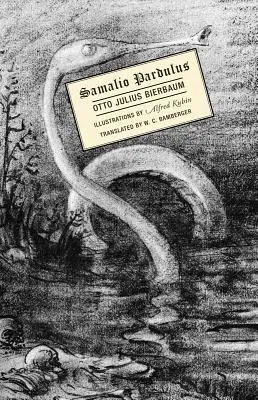A gothic novella offering a stepping-stone between German Romanticism
and the then-nascent Expressionism
In an isolated castle on the outskirts of a city in the Albanian
mountains, the wildly ugly painter of blasphemies, Samalio Pardulus,
executes works too monstrous to bear viewing, and espouses a philosophy
that posits a grotesque world which reflects the ravings of a dead,
grotesque god. Told through the horrified account of Messer Giacomo (a
mediocre artist at once repulsed and fascinated by the events unfolding
around him), Samalio Pardulus describes the simultaneous descent and
ascent of the titular antihero into a passionate perversion of
Catholicism in which love and madness become one, as a dark, incestuous
incubus settles into a doomed family.
When it was first published in 1908, Otto Julius Bierbaum's gothic
novella--the first of his Sonderbare Geschichten ("Weird
Stories")--offered a Gnostic stepping-stone between German Romanticism
and the nascent Expressionism that had not yet taken root. It presents
the grotesque not just as a way of life, but as a godly path to a higher
vision, even when it appears to be but a manifestation of evil.
This first English edition includes the full set of illustrations by
Alfred Kubin from the book's 1911 German edition.
Otto Julius Bierbaum (1865-1910) was a German novelist, poet,
journalist and editor. His 1897 novel Stilpe inspired the first
cabaret venue in Berlin a few years later; his last novel, the 1909
Yankeedoodlefahrt, produced a German proverb still in use today:
"Humor is when you laugh anyway."

